I can’t help but feel like nonvegans are bad people
Very often, as vegans, we can end up viewing nonvegans in a very negative light. We tend to assume that a nonvegan is a nonvegan and nonvegans are all the same.
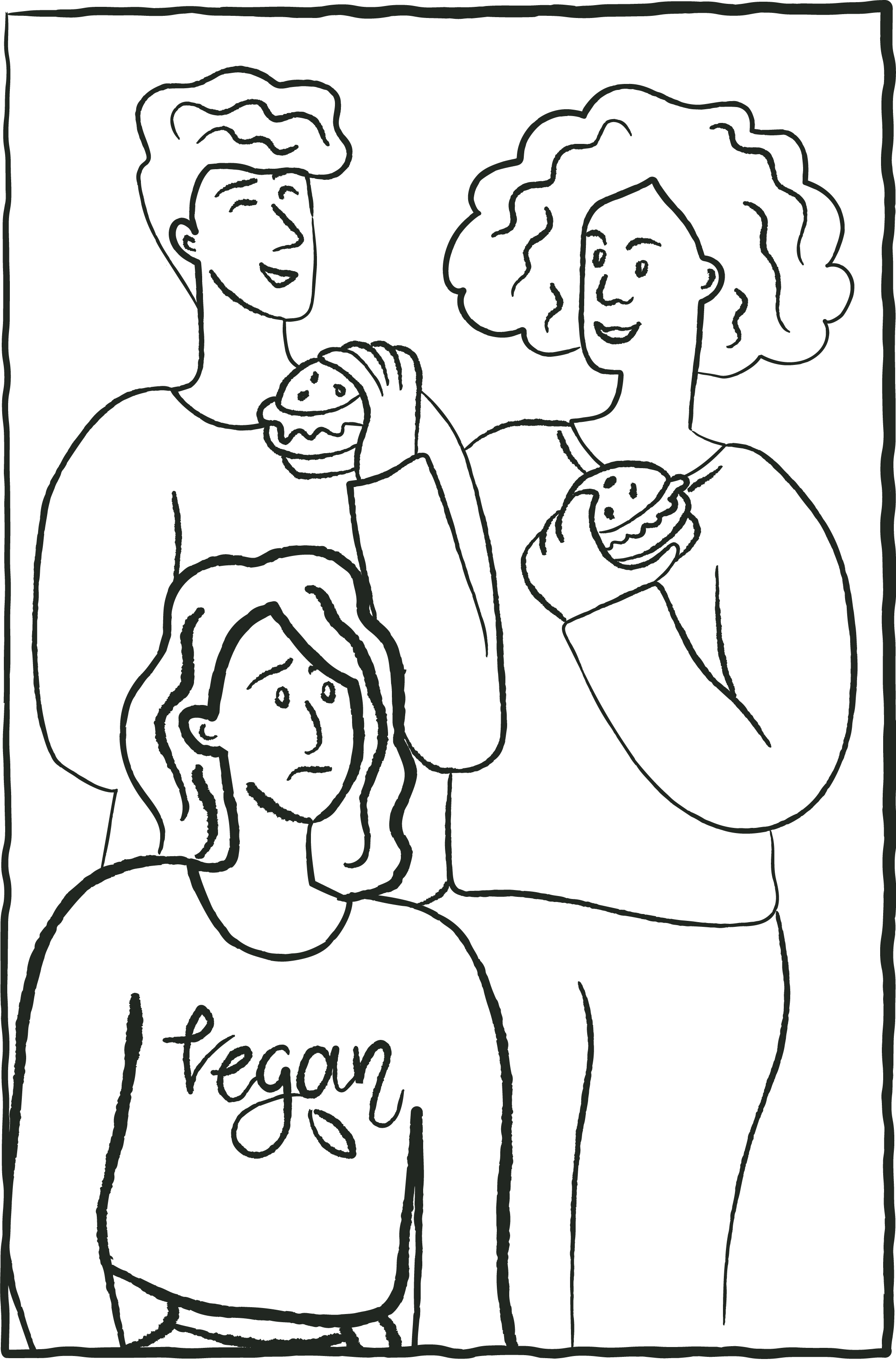
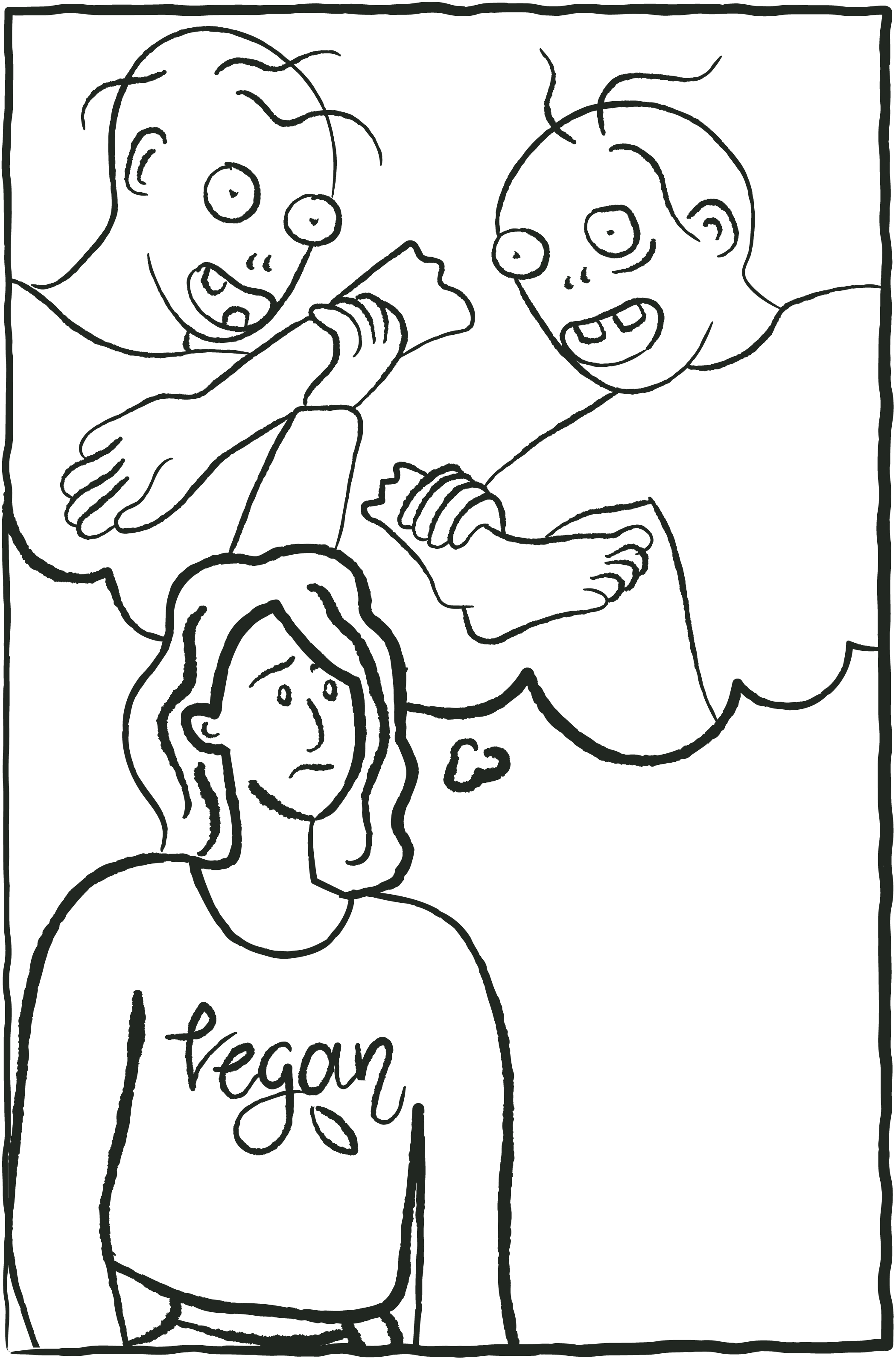
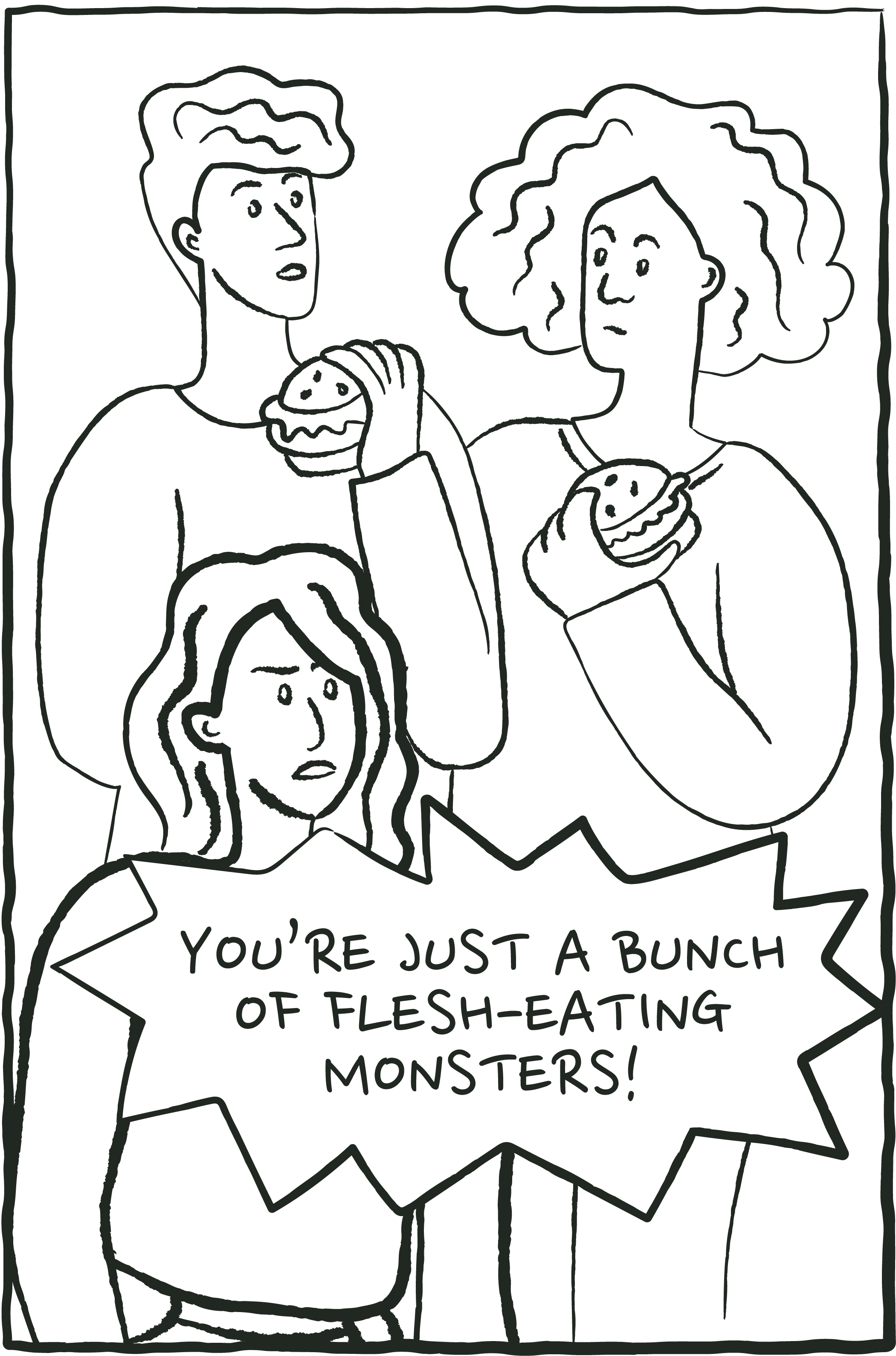
But if we hope to persuade more people of the benefits of veganism, we need to avoid this kind of thinking. And it’s vital that we understand the psychology of nonvegans, whose attitudes and behaviors are driven by carnism.
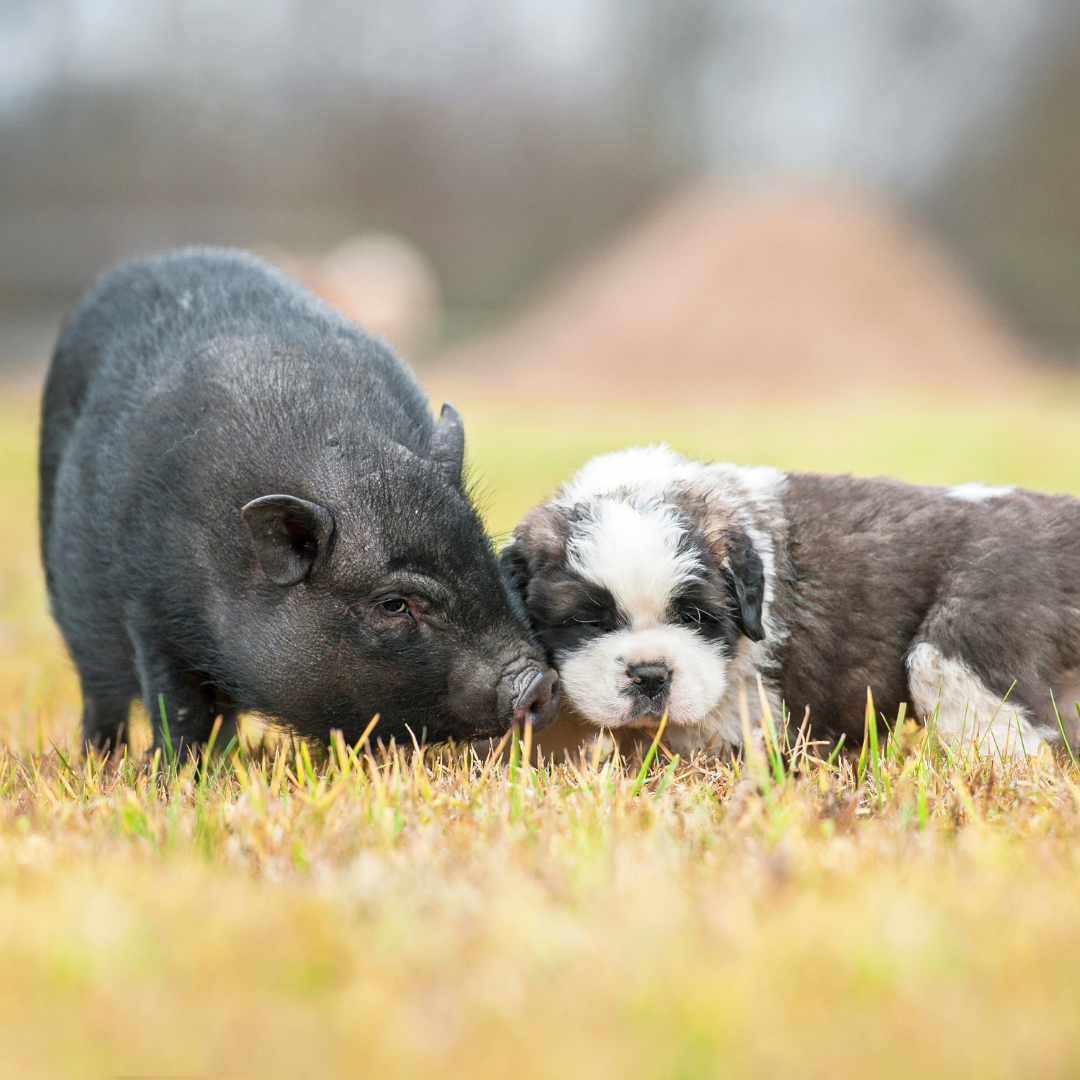
Learn about carnism
Carnism distorts people’s perceptions so that they look at a hamburger and see food rather than dead animals. It can cause rational, compassionate people to support irrational, cruel practices without fully realizing what they’re doing.
You’ll find a quick introduction to carnism in this short video.
By understanding how carnism influences people’s thoughts and behaviors, we have a much better chance of having healthy interactions—and even productive conversations about veganism—with nonvegans.
Cultivate a positive identity
When we want people to move toward veganism, it can be tempting to brand them with a negative identity, an identity they don’t want to have, in an attempt to make them change. Sometimes, vegans actually refer to nonvegans as “animal abusers,” believing that, because nobody wants to think of themselves as an animal abuser, giving people this label will motivate them to stop eating animals. But research shows that this approach is actually counterproductive.
Instead, an effective way to motivate people to change is to nudge them toward adopting a positive identity—an identity that they want to have. We can do this by helping people realize that they already do share the values that we want them to practice more fully, such as compassion.
By cultivating positive identities and watering the seeds of the behaviors we want to grow, we help people bring their behaviors into better alignment with their values.
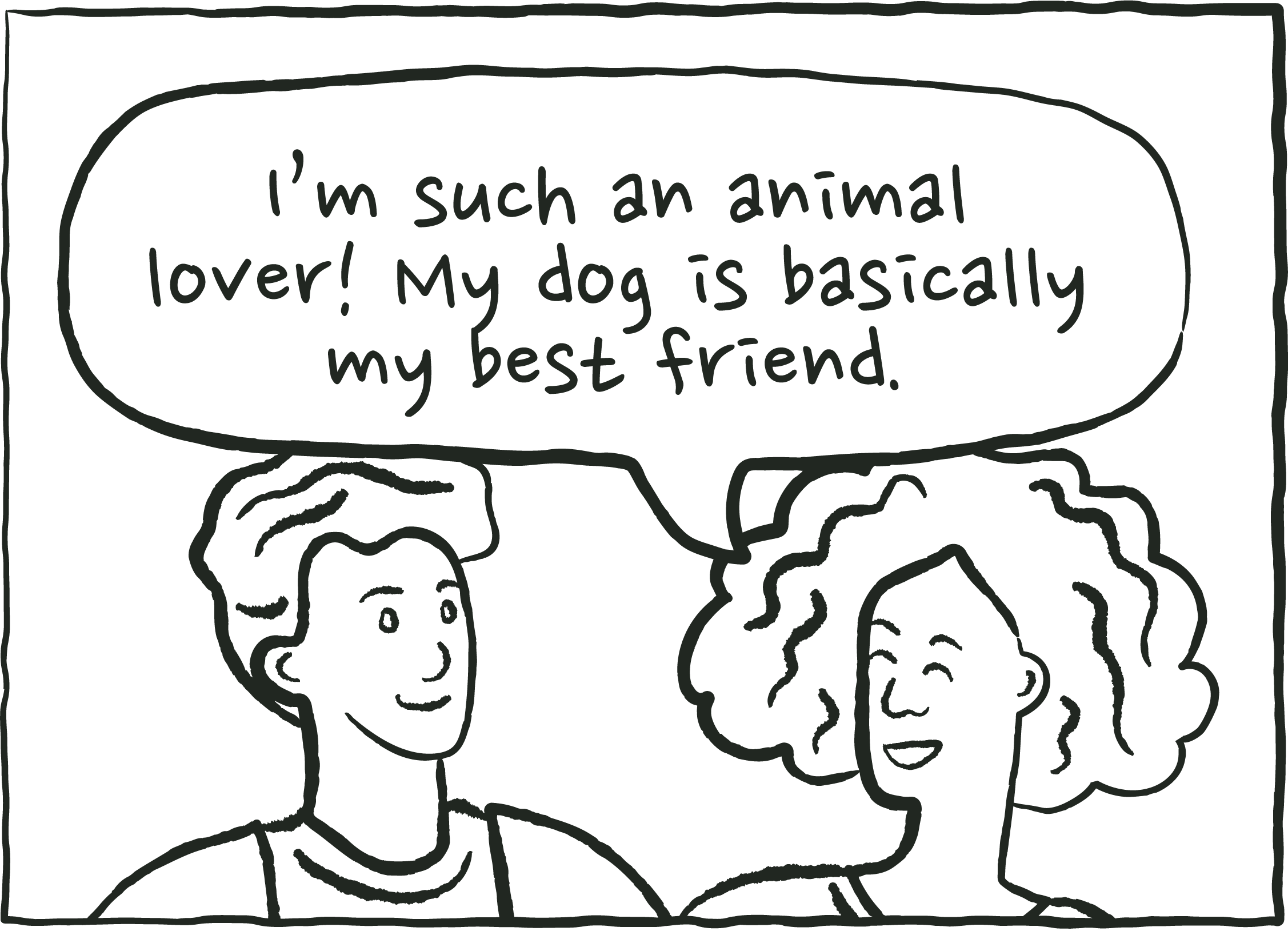
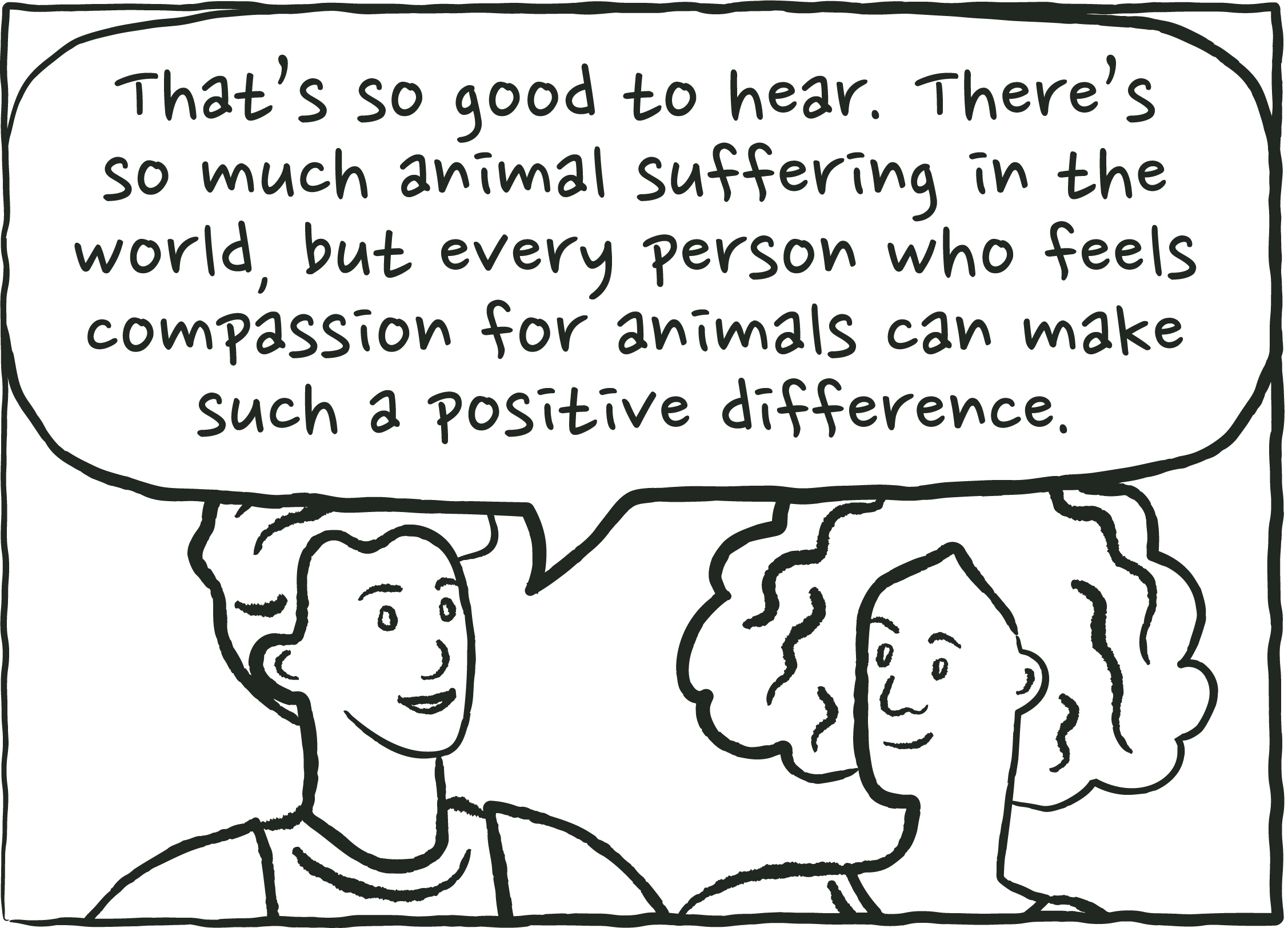

Let impact be your guide
Finally, it’s important to recognize that people can help transform carnism without being fully vegan. When someone who has a standard American diet stops eating animals, they spare the lives of approximately 105 animals per year. And when a nonvegan journalist writes a positive article about veganism for a major news outlet, they raise awareness of veganism among hundreds of thousands of readers. If 250,000 people read that article and just 0.1% of them reduce their consumption of animals by just 10%, that could spare over 2,000 animals per year!